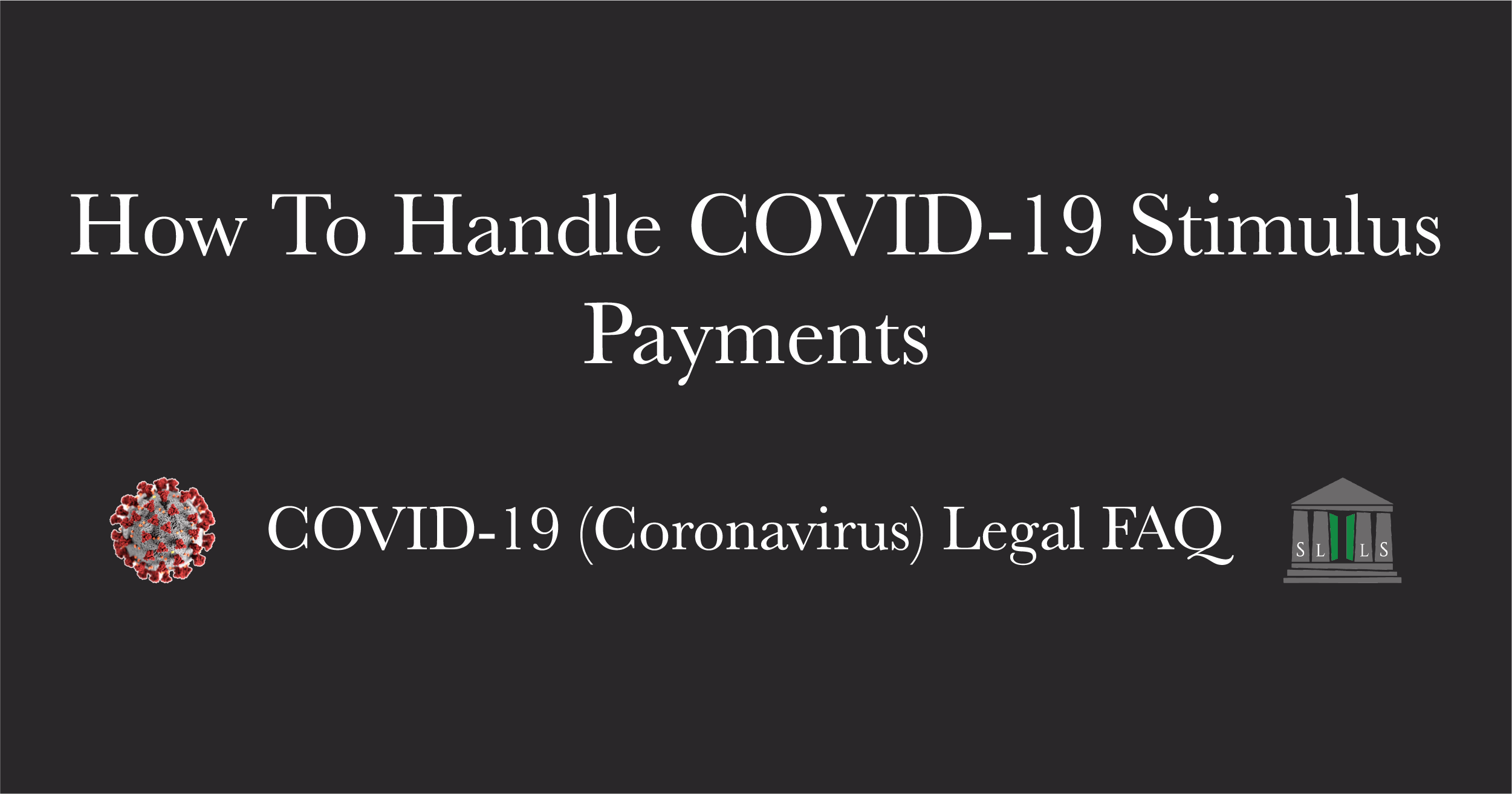How to Handle COVID-19 Stimulus Payments from the Government
Posted on: July 17, 2020
How to Handle COVID-19 Stimulus Payments from the Government
The information provided on this post does not, and is not intended to, represent legal advice. All information available on this site is for general informational purposes only. If you need legal help, you should contact a lawyer. You may be eligible for our free legal services and can apply by calling our Covid Legal Hotline at 1-844-244-7871 or applying online here.
If you have received or expect to receive stimulus payments from the government due to the COVID-19 crisis, be careful how you receive and keep the money. There are several ways you could lose the money, before you even get it.
BE CAREFUL ABOUT BANK ACCOUNTS
The easiest way for most people to receive their stimulus payment is through a direct deposit from the government to their bank account. Unfortunately, that is also the easiest way to lose it. A few pitfalls to watch out for are:
You Owe Money
If you owe money and a court has entered a judgment against you, your money could be seized (garnished) the second it is sent to your bank. For example, if a credit card company has a judgment against you and it is unpaid, the creditor could have obtained a court order for the bank to seize any money that is deposited into your account.
Also, do you owe bank fees? Is your account overdrawn? If so, the bank can offset and take your stimulus payments to pay its bank fees.
Unless your stimulus is deposited into a specially designated account (see below), a creditor or the bank could take your stimulus money.
Only A Special Type Of Bank Account Can Protect Your Stimulus Money
Some of you may have heard that the law recently changed to protect stimulus payments. That is true for money in bank accounts only if you have a special type of account.
Under a new law passed in Louisiana, stimulus money that you receive or hold in the bank is only protected if you open a specific type of account. You must open an account that is designated as an "RS 20:34 Account." That's right, the bank must describe it as an RS 20:34 Account on the paperwork. If your account is not designated that way, a creditor can seize your stimulus money.
It may be possible to convert an existing bank account to an RS 20:34 account, but make sure the designation appears conspicuously on the paperwork from the bank creating the account. If you request checks, make sure the designation “RS 20:34 Account” appears on the checks.
Don't Commingle (Mix) Stimulus Money With Other Money
If you have stimulus money in a designated RS 20:34 bank account, only use that account to hold the stimulus funds. If you deposit other funds into the same account, the stimulus money could lose its exempt status.
If A Garnishment Order Has Been Issued, You Must Obtain A Court Order To Enjoin The Seizure Of Exempt Funds
Louisiana’s new law does not automatically stop banks from honoring a court order to garnish or seizure exempt stimulus funds. You must obtain a court order enjoining the bank from seizing your 20:34 Account funds. You can contact the Southeast Louisiana Legal Services Coronavirus (COVID-1) legal assistance hotline at 1-844-244-7871 to see if we can provide free legal help with this.
If You Will File Bankruptcy, Tell Your Attorney About Your Stimulus Funds
Be sure to tell your attorney if you have exempt stimulus funds in the bank or elsewhere, before you file bankruptcy. The exempt nature of the stimulus funds must be listed in the bankruptcy schedules, or the bankruptcy trustee may seize them.
